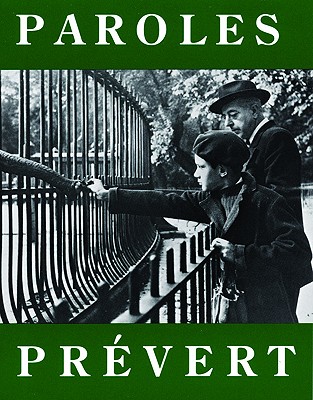 While digging through some old books while visiting the family in Florida, I came across two poetry collections that hold particular places in my personal archaeologies.
While digging through some old books while visiting the family in Florida, I came across two poetry collections that hold particular places in my personal archaeologies.
The first is Jacques Prévert’s Paroles.
The second is Anne Carson’s Men in the Off Hours.
I purchased the first towards the end of the nineties. I was attracted to the idea of the book… to its history… as much as to its actual poetry.
This edition was translated by Beat godfather and proto-Beat poet Lawrence Ferlinghetti and was published by his own press, City Light Books.
Paroles struck a chord with the young people who lived through Pétain, the Occupaion, la Resistance, even though Prévert, who was born in 1900, was part of an earlier generation. The book sold hundreds of thousands of copies.
For me the early nineties was a special moment. The economy sucked, but I was discovering poets like Adrienne Rich and Ezra Pound. We gathered in homes and at scruffy coffeehouses and read from notebooks and cheap printouts of our original (though frequently derivative poems), we drank coffee and parsed the finer points of Marxian philosophy, and we read so damn much. Unsurprisingly, these were the days before the internet was much of anything and thirty channels of television seemed like a lot.
Reading about Paroles reminded me that maybe we were part of a longer literary tradition of young people running heedlessly towards poetry for understanding and solidarity.
The poems themselves are heavily tinged with Existentialism, Surrealism and Symbolism. They are not spectacular, but I can easily see the attraction of theses stanzas.
The second collection, Men in the Off Hours, I found in 2001 in a Books-A-Million on Dupont Circle (it’s still there). I don’t know why it struck me. I had already picked out Beauvoir’s novel, The Mandarins. I didn’t need another book. At least not on that day.
Carson’s combination of classicism and contemporary media – imagining television interviews about or of Lazarus and Antonin Artaud. Poems about the works of painter Edward Hopper combined with quotes from Saint Augustine’s Confessions.
This book mattered because Carson has since gone on to become my favorite poet.
One thought on “‘Paroles’ and ‘Men in the Off Hours’”